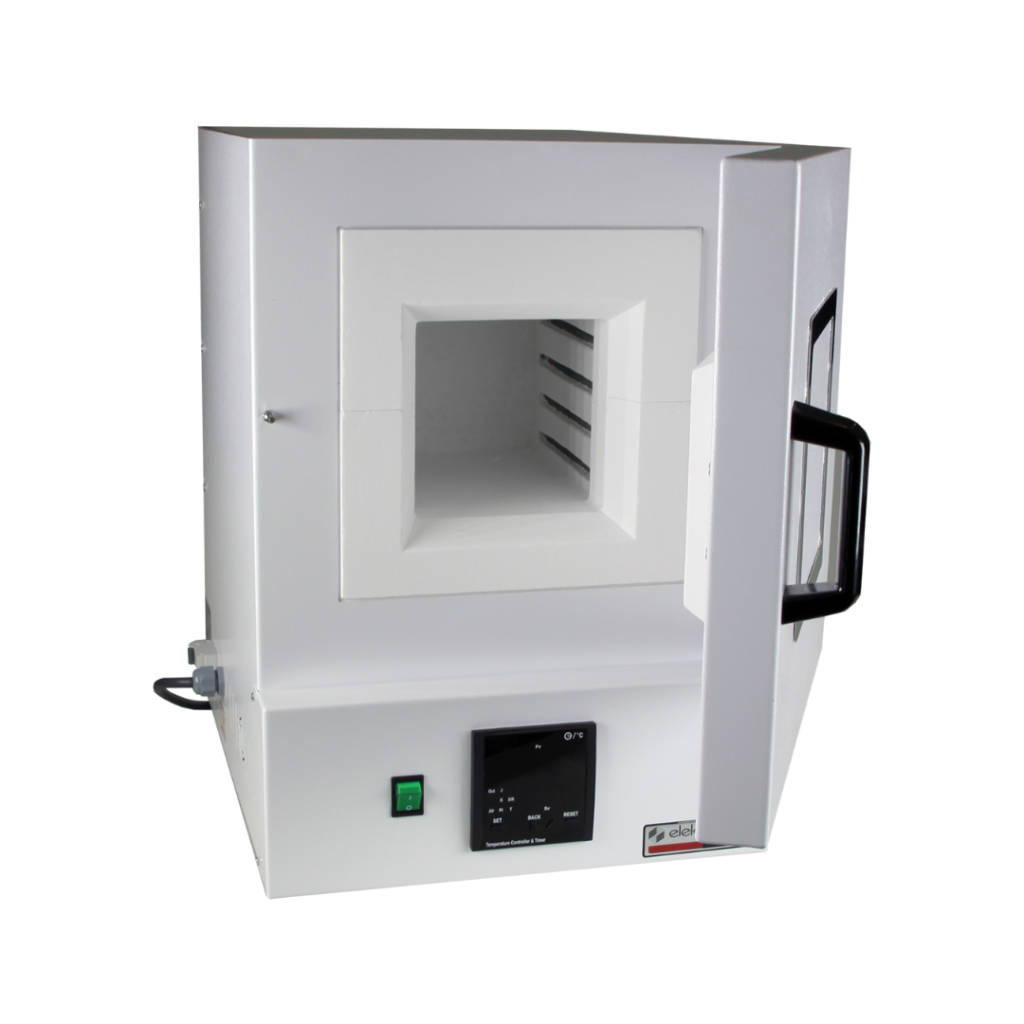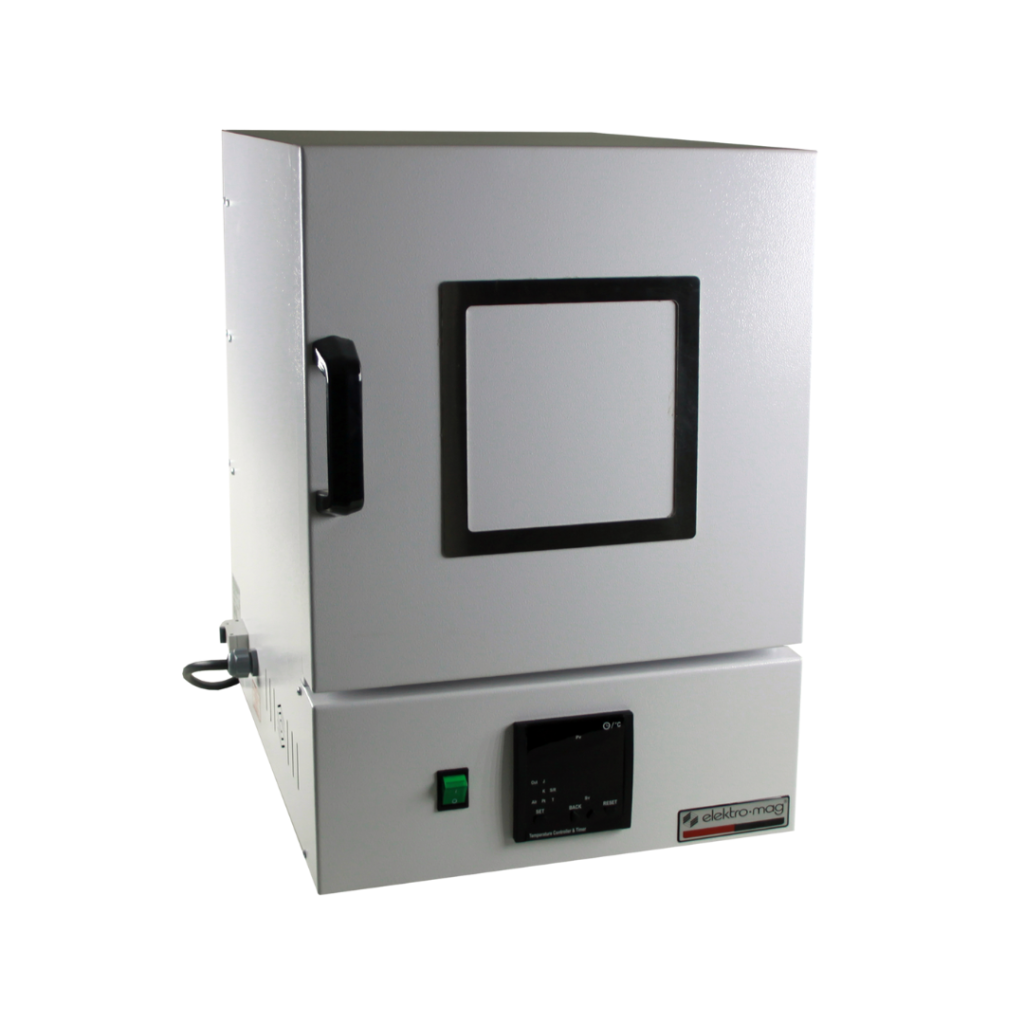The M 1813 Laboratory Furnace is designed to handle high-temperature tasks, with a working range from 250°C to 1200°C. Featuring a chamber volume of 7.2 liters and a continuous working temperature of 1150°C, this furnace is ideal for precise thermal applications. Its Ni-Cr Ni thermoelement and PID digital control system ensure accurate temperature settings. The solid-state relay (SSR) provides reliable load switching, while the ceramic wool and ceramic plate insulation guarantee optimal safety and energy efficiency. The robust casing material adds durability, making it perfect for various lab environments.
| Feature | Description |
|---|---|
| Temperature Range | 250°C – 1200°C |
| Chamber Volume | 7.2 L |
| Continuous Temperature | 1150°C |
| Thermoelement | Ni – Cr Ni |
| Temperature Control | PID Digital |
| Load Switching | Solid State Relay (SSR) |
| Thermostat Setting | 1°C steps |
| Thermometer Display | 1°C increments |
| Temperature Accuracy | ± 10°C |
| Power Rating | 3000 W |
| Heater Type | Khantal A1 |
| Chamber Dimensions (WxHxD) | 20 x 12 x 30 cm |
| Overall Dimensions | 43 x 55 x 66 cm |
| Net Weight | 42 kg |
Category Description:
Laboratory furnaces are essential for high-precision thermal processes. These furnaces are designed to achieve and maintain extremely high temperatures for a variety of applications in fields like materials research, metallurgy, and ceramics. With robust insulation and precise temperature control, these units ensure consistent performance even under demanding conditions. The furnaces in this category typically feature digital controls for accuracy, advanced safety features, and durable materials that withstand frequent use, making them indispensable for laboratories handling high-temperature tasks.
FAQ
How do laboratory furnaces ensure safety during operation?
Most laboratory furnaces, including the M 1813 model, come equipped with advanced safety features like cover safety switches, robust insulation materials, and overload protection, ensuring safe operation even at high temperatures.
What materials are used for insulation in laboratory furnaces?
Insulation materials, such as ceramic wool and ceramic plates, are commonly used for thermal efficiency and safety, as seen in the M 1813 Laboratory Furnace.
What is the purpose of a PID Digital control in laboratory furnaces?
The PID Digital control system in furnaces allows for precise temperature regulation, ensuring that the set temperatures are maintained with minimal fluctuations.


